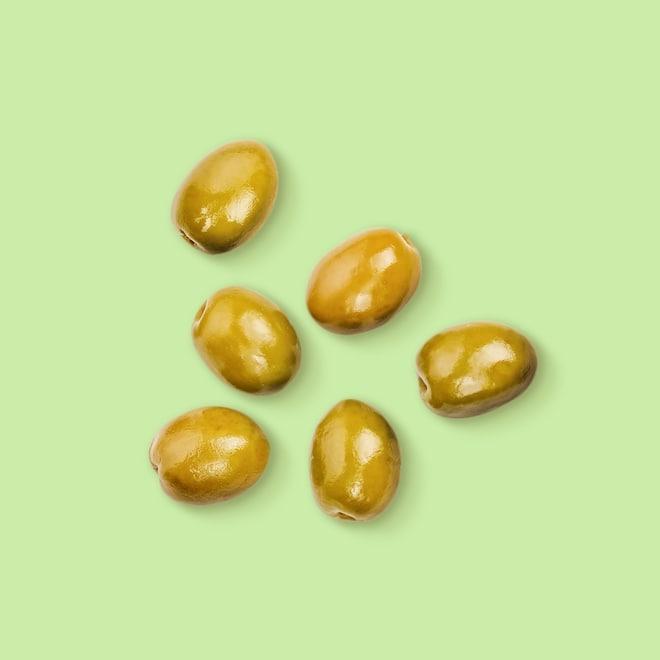Olives




Olives are the most commonly grown ancient fruit around the world and hail from the Mediterranean, Asia, and Africa where they were discovered about 6000 years ago. More than just a source of food and oil, olives and specifically olive branches carry historical, religious, and cultural meaning.
Though olives are readily available in cans, buy them from the olive bar when possible as the heat involved in canning degrades the quality of the olives.
Store them in the refrigerator in a bit of the brining liquid to keep them fresh for up to a week.
Use a bit of olive oil to moisturize your skin and remove makeup, or mix it with sugar to make an exfoliating body scrub.
Olives can’t be picked and eaten straight away like most fruits; they have to be cured first, which leaches out their bitterness.
Olive trees can produce fruit for 1000 years.
Olives make a simple appetizer or addition to an antipasto spread.
Olives cured in oil have a more pungent and intense flavor, while olives cured in brine tend to be tangy and salty.
Add olives to pepper and tomato based sauces, slow cooked stews, green salads, and potato salads to add a deep briny flavor.
Make a simple salad with olives, cucumbers, tomatoes, and feta to serve with warm pitas.
Olives are a wonderful source of monounsaturated healthy fats, iron, and fiber.
They’re also a great source of Vitamin E, a powerful antioxidant that protects your cells from pollution damage and other free radicals.
Corrections or improvements? Email us at
content@sidechef.com